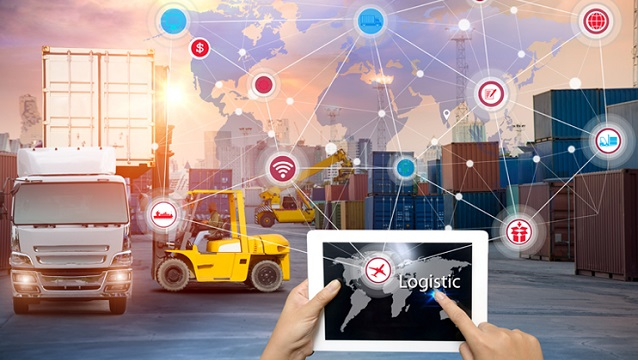Revolutionizing Businesses with Logistics Technology: The Future of Last-Mile Logistics
As the global economy becomes increasingly fast-paced, businesses must adapt to meet the growing demands of their customers. Among the most critical challenges is mastering last-mile logistics—the final and often most expensive segment of the supply chain. To tackle this, businesses are turning to innovative logistics technology, particularly transport software, which has proven to be a game-changer in optimizing operations and improving customer satisfaction.
The Importance of Last-Mile Logistics
Last-mile logistics is the backbone of the modern delivery ecosystem. It involves delivering goods from the transportation hub to the final destination, often at a customer’s doorstep. While it represents only a small portion of the journey, it accounts for over half of the total shipping costs.
The growth of e-commerce and the rise of customer expectations have further complicated last-mile delivery. Consumers now expect same-day or next-day delivery, real-time tracking, and flexible delivery options. To meet these expectations efficiently, businesses need robust logistics technology like transport software to streamline their operations.
Why Businesses Need Logistics Technology
Adopting logistics technology is no longer optional for businesses looking to stay competitive. Here’s why it’s a necessity:
1. Improving Delivery Speed
In today’s competitive market, fast delivery is a key differentiator. Transport software enables route optimization, ensuring that drivers take the most efficient paths and make timely deliveries.
2. Enhancing Customer Experience
Customers demand transparency and convenience. Logistics technology allows businesses to provide real-time tracking, accurate delivery windows, and proactive notifications, building trust and satisfaction.
3. Cutting Operational Costs
Manual logistics processes are prone to errors and inefficiencies. By automating tasks like dispatching, scheduling, and route planning, businesses can reduce overheads and save time.
4. Adapting to Urban Challenges
Urban areas present unique challenges such as traffic congestion and complex delivery routes. Transport software leverages traffic data to navigate these obstacles efficiently, reducing delays and improving delivery rates.
Revolutionizing Last-Mile Logistics with Transport Software
Transport software has become the cornerstone of innovation in last-mile logistics. It provides businesses with the tools they need to overcome challenges and seize new opportunities. Here’s how:
1. Real-Time Tracking and Visibility
Transport software offers live tracking of vehicles and shipments, ensuring businesses and customers have full visibility into the delivery process. This transparency builds customer trust and reduces missed deliveries.
2. Optimized Routes for Efficiency
Advanced algorithms analyze real-time traffic and delivery data to suggest the most efficient routes, saving fuel and time.
3. Automated Delivery Management
From assigning drivers to updating customers on delivery statuses, transport software automates many repetitive tasks, allowing logistics teams to focus on strategic decision-making.
4. Data-Driven Insights
Analytics provided by transport software give businesses actionable insights into delivery performance, helping them identify bottlenecks and areas for improvement.
5. Sustainable Practices
With increasing pressure to adopt eco-friendly operations, transport software helps minimize fuel usage and emissions by optimizing delivery routes and vehicle utilization.
Challenges in Last-Mile Logistics and How Technology Solves Them
Despite its potential, last-mile logistics comes with unique challenges. Here’s how transport software addresses these issues:
1. Escalating Delivery Costs
The high cost of last-mile delivery is a major concern for businesses. Transport software reduces these costs by automating processes, optimizing routes, and minimizing failed deliveries.
2. Urban Congestion
Deliveries in urban areas are often delayed due to traffic and restricted zones. Transport software analyzes traffic data in real time to find alternative routes and ensure timely deliveries.
3. Increasing Delivery Volumes
With the surge in e-commerce, businesses face challenges in managing high delivery volumes. Automation and scheduling tools in transport software ensure seamless handling of large-scale operations.
4. Customer Expectations
Customers demand flexibility and accuracy in delivery times. Transport software provides precise delivery windows and real-time updates to enhance the customer experience.
Steps to Implement Logistics Technology in Your Business
Adopting transport software requires careful planning to ensure a smooth transition and maximum ROI. Here’s a step-by-step guide:
- Assess Your Needs
Identify pain points in your logistics operations, such as delivery delays, high costs, or lack of tracking capabilities. - Choose the Right Technology
Select a reliable and scalable solution like transport software that aligns with your specific needs and business size. - Train Your Team
Provide comprehensive training to ensure all stakeholders can effectively use the software. - Monitor and Optimize
Continuously track key performance metrics such as delivery time, customer satisfaction, and cost savings to measure the impact of the software.
The Future of Logistics Technology
The future of last-mile logistics lies in technological innovation. Emerging trends such as autonomous delivery vehicles, drone deliveries, and AI-powered analytics are set to transform the industry. Businesses that embrace these advancements will be better positioned to meet customer demands and outperform competitors.
By investing in cutting-edge tools like transport software, businesses can stay ahead of the curve and drive long-term success.
Conclusion
Last-mile logistics is no longer just about delivering goods; it’s about delivering exceptional customer experiences. Logistics technology, especially transport software, is empowering businesses to meet customer expectations, reduce costs, and overcome urban challenges.
As the industry continues to evolve, adopting advanced logistics tools will be crucial for staying competitive. By leveraging the power of transport software, businesses can revolutionize their operations and pave the way for a more efficient and sustainable future.
Keep an eye for more news & updates on USAUpMagazine!






